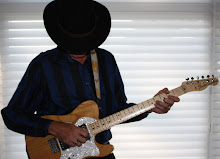It takes two, so says
Rolling Stone’s 20 Greatest Duos of All Time. “Less narcissistic than a solo performer,
more intimate than a band.” Not sure
that quite holds up, but when the chemistry works, a duo can indeed be magical.
I’m a tad confused about
what holds this list together, though.
We’ve got bona fide duos, such as Richard and Linda Thompson, Simon
& Garfunkel, and The Everly Brothers.
But then we’ve got duos that
may be duos but they sound like
bands, even though they are definitely driven by a partnership of two, e.g.
Black Keys or Steely Dan. I mean, is
Ronnie Wood any less of a hired gun
than Larry Carlton?
Debatable, maybe, if you
apply that logic to Sam & Dave, but then the list gets weird. Ashford & Simpson were really known for
songwriting, not performing, so why not King & Goffin? Fripp & Eno were a one-off. Ike Tuner was big before Tina, Tina was big
after Ike, and no one wants to remember
the period in between.
Maybe 20 is a stretch and this
should have been a Top 10 list.
ps - Lee Hazelwood and Nancy
Sinatra have “stood the test of time?”
Really?
